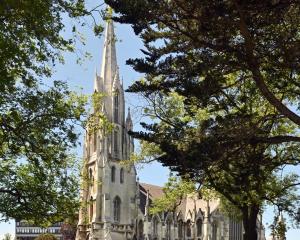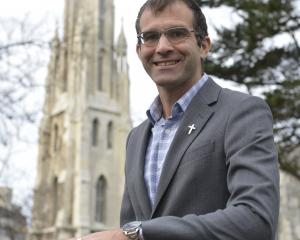Peter Lyons reflects on lessons on life learned from his father.
My father is in the end zone and it is difficult to watch. He is now almost blind. This is a genetic condition we share, courtesy of Darwin's lottery. He has had heart attacks, skin cancer, a stroke and has lost his beloved wife of 50 years.
Throughout this, he has fought bravely to maintain his positivity and zest for life. This is now ebbing. Old age is not for the weak.
His generation is slipping away.
They survived the Great Depression and World War 2. Their concept of hardship involved real hunger and deprivation rather than coping without a wide screen TV. We have much to learn from them.
There is a beautiful Maori saying.
"He tangata, He tangata." It is people , it is people. I am an economist and economics teaches that it is material possessions that count. At this stage in my father's life, material possessions mean next to nothing. He would gladly be a pauper living in a tin shack to have his wife and health. He has watched friends spend a lifetime chasing constant accumulation only to realise too late their error.
I have learned that my father's struggles await all of us who make it that far. This realisation provides a litmus test as to what is important in the here and now. All Black captains, billionaires, movie stars and you and me will all experience this decline unless we are fortunate enough to expire gracefully watching Coronation Street while sipping a strong whisky.
The route may vary, but the destination is identical. This is what is meant by shared humanity. There is little point wasting energy on constant comparisons. Ozymandias rings true.
"Ozymandias, King of Kings, Look at my work ye mighty and despair,Nothing else remains, round the decay of that colossal wreck, boundless and bare, the long and level sands stretch far away and level."
Death and ageing are the great levellers. They put the irritating detail of daily life in stark perspective.
Ignore these day to day frustrations and strive to fulfil potential. Be decent to others.
I have learned that no-one is sorted in coping with the vissitudes of life.
Many believe such a legendary figure exists. We are bombarded with images of those who appear more successful and fulfilled. Yet no-one is living this fabulous life though some claim to be.
They are the ones to be wary of . They are on tenuous terrain. They may be leading the sprint but this is a marathon. Fortune is fickle and change is constant. Comparisons with others invites discontent. All of us project a facade to some degree in our dealings with others. None of us wish to appear fragile or vulnerable. Yet happily married couples suddenly split amid accusations of infidelity.
Prosperous businessmen declare bankruptcy after lifestyles funded by credit. Superstars reveal sad lives of addiction. We are all susceptible to feeling inferior by comparison to an illusionary ideal.
My father has coped in recent years through his Catholic faith. I have come to respect this benefit of religion and the community that goes with it yet am unable to accept it myself. I strive to follow the philosophical teachings of stoicism advocated by classical writers such as Seneca and Marcus Aurelious.
The core teaching is that we can't always control what happens to us, but we can control our attitudes to what befalls us. Never take the moment or the gifts of life for granted. It is a beautiful philosophy that has been bastardised in its modern use of the term.
I have learned that life is a journey and the quality of this journey is somewhat reliant on luck and happenstance. I was lucky to be born to good parents, reasonably affluent, who cared how I fared in life. I am a product of genetics and upbringing.
The genetic endowment has not always benefited me but the conditioning has allowed me a degree of success and good fortune in life.
Many others do not have this huge advantage. The measure of a society should be how it seeks to overcome this lack of equality of opportunity. On this measure our society has regressed in recent decades.
I have learned to strive to live as good a life as possible. This good life means seeking the things that give real deep pleasure. To me these have included learning, teaching and writing. Too often we are distracted by the superficial. He Tangata, He Tangata provides some guidance.
There is not one answer for all and a good life does not always mean living within the conventions of "normal" society. It usually involves an element of service to others.
I have always been a wanderer but the past few years of caring for my father have been among the most satisfying and content of my life.
At this stage in my father's life I replay in my head, Dylan Thomas' poem written for his ailing father.
"Do not go gentle into the good night,Old age should burn and rage at the close of day,Rage , rage against the dying of the light."
I realise now what he was saying. But this is a cry against a process as natural as day and night and the changing of seasons.
When he goes I will miss my father deeply, but I am proud to be the son of a good man who has lived a good life.
• Peter Lyons is an Auckland writer and teacher












